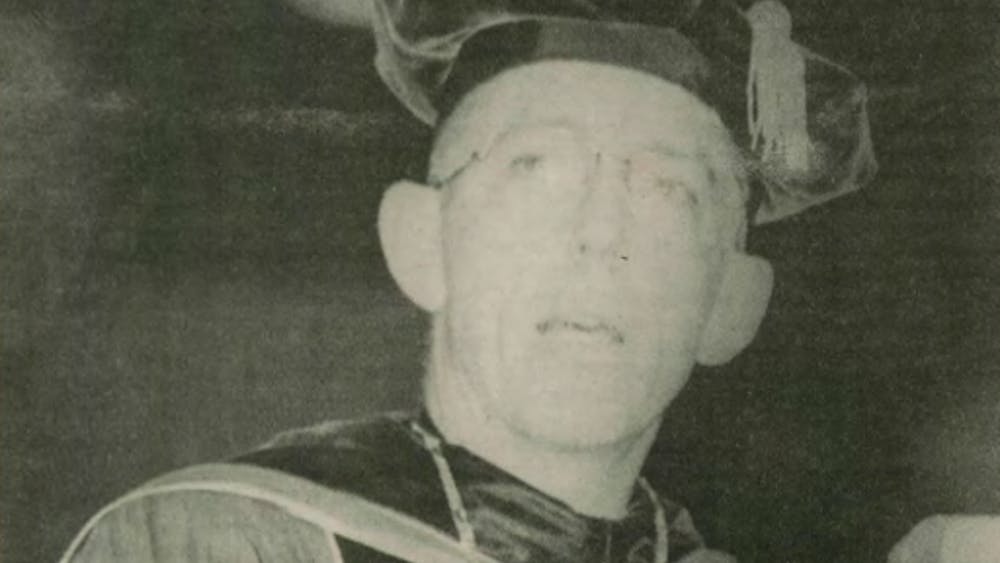In this episode of The Recap, host John Salem discusses the increasing numbers of positive COVID-19 cases on campus and the University’s efforts to decrease the spread. He also recaps News Writer Maggie Eastland’s story on the economic implications of a possible minimum wage increase and staff writer Gabrielle Penna’s story on expanding child tax credit.
[playlist images="false" tracklist="false" ids="220574"]
Transcript:
John Salem: From the News Department of The Observer, this is The Recap. I’m John Salem, and I’ll be hosting this episode of The Observer’s news podcast — serving Notre Dame, Saint Mary’s and Holy Cross.
To start this episode, let’s take a look at the COVID-19 statistics here on campus and what changes might occur because of them. As of Friday, Feb.19, 2021, there have been a total of 526 positive cases of the virus, of which 364 are estimated to be active. There have been a total of 45,692 tests, the vast majority of which are the result of routine surveillance testing. We’ve had a particularly rough week, averaging 34.3 positive tests per day over the last seven days with an overall positivity rate of 1.6%.
In response to growing COVID numbers, the University has enacted a number of new restrictions, which went into effect Thursday, Feb. 18. These restrictions include the barring of in-person meetings for student clubs and organizations, reduction of seating capacity in public spaces campus-wide and, most significantly, limiting undergraduate residence hall visitation to only residents of the hall itself. These restrictions will be enforced at least until March 1 and possibly after.
In lighter news, the Raise the Wage Act, recently proposed in the House of Representatives, promises an annual increase in the minimum wage until it reaches $15 an hour by 2025, as well as an index to continue raising the minimum wage at the same rate as median hourly wages.
Maggie Eastland: Two Notre Dame professors in the economics department, Forrest Spence and Rüdiger Bachmann, said they would support a moderate increase in minimum wage but also expressed some concerns that such a drastic change like the $15 an hour proposed, which would more than double the federal minimum wage, could have some unintended consequences.
John Salem: That was Maggie Eastland, staff writer.
Spence, an assistant teaching professor in the department of economics, commented on the proposal.
Forrest Spence: “Anytime you move some policy lever, you’re going to help some people and you’re going to hurt some people. We as a society have to decide if we think this is the right movement that we want to do. As an economist, I’m surprised by such a large change; more than doubling the current nominal amount.”
Maggie Eastland: Both Spence and Bachman cited a report from the congressional budget office that predicted the $15 proposed minimum wage would raise 0.9 million Americans out of poverty at the cost of 1.4 million jobs.
John Salem: Bachmann and Spence both support a more moderate increase in national minimum wage coupled with targeted, localized increases in part due to the large discrepancies between standards of living and current minimum wages in cities across the country.
Spence commented on the dangers of the extreme wage increase.
Forrest Spence: “You run the risk of hurting the people that you’re trying to protect the most and also generating more political polarization.”
John Salem: According to Spence and Bachmann, the increase in minimum wage could affect the job market at Notre Dame, as the increase in wage would likely cause both layoffs or tuition increases.
Maggie Eastland: I also reached out to Dennis Brown, University spokesman and vice president of news and media relations, to find out more about how employees at Notre Dame are compensated. He told me that the majority of employees are paid more than $12 an hour in base pay. He also said that the total value of their compensation and benefit exceeds the local market by more than 18%.
John Salem: Brown also mentioned that there are a number of resources and benefits made available to the staff, which, according to Spence, could be put at risk if there’s an increase to minimum wage.
Now let’s transition to a story focusing on a Notre Dame professor featured in the New York Times. News Writer Gabrielle Penna reported on the story.
Gabrielle Penna: Part of President Biden’s $1.9 trillion American Recovery Plan to address increased economic inequality during the pandemic includes proposed changes to the child tax credit policy by temporarily providing additional funds to parents. Earlier this month, U.S. Senator Mitt Romney proposed an alternative bill that would give parents more money than allocated in the America Recovery Plan, giving lawmakers a second expansion option to consider.
John Salem: Kasey Buckles, a professor of economics at Notre Dame who was recently featured in a New York Times article about expanding the child tax credit, spoke on why plans that provide relief to families hold such high importance.
Kasey Buckles: “Children benefit all of us. They are future productive members of society. They are going to be the ones that are going to invent things and cure diseases and work, and they pay into systems those who can't work or support older Americans, and for all of these reasons we need children, and the benefits of children are greater for society than they are for the parents alone.”
Gabrielle Penna: Considering the context of this year, Buckles reflected on the effects of COVID-19, which has left many families struggling. Many parents have been forced to leave the workforce, either because of the disappearance of their previous position or their need to support their children at home. Because so many have faced these issues, Buckles does not see the lack of regulation in this proposal as a wrong approach.
John Salem: Buckles felt confident that the country would be able to handle whatever economic strain the proposed plan might entail.
Kasey Buckles: “Any government policy is feasible if we decide that it’s a priority. We currently have long-term support for older Americans, a system that provides long-term support for disabled Americans. So if we decided as a nation that it is important to provide long-term support for families, especially families with young children, then we could make it happen.”
Gabrielle Penna: Redirecting the focus to students, Buckles noted the impact this policy could have on the Notre Dame community.
Kasey Buckles: “If this is enacted and becomes a permanent feature of our safety net and our tax system that will affect a great many Notre Dame students who are likely to become parents over the next 10 to 20 years.”
John Salem: In closing, Buckles had hope that the proposed plan would provide relief to families around the country, and that its effect would persist long after the era of COVID.
Kasey Buckles: “It provides this long-term support that makes it more feasible for people to have and raise children in the first place and this is that social value of children that we talked about. I think that really could represent a shift in the way we think about future generations and the people who are taking care of the future generations.”
John Salem: That’s it for this episode of The Recap. Thanks for listening. Join us weekly for summaries of the major headlines on Notre Dame, Saint Mary’s and Holy Cross’ campuses. Thank you to Editor-in-Chief Maria Leontaras, Notre Dame News Editor Serena Zacharias, Managing Editor Mariah Rush, Assistant Managing Editor Claire Rafford and News Writers Gabrielle Penna and Maggie Eastland. This has been John Salem for The Observer.
Music by Ryan Neff
Read More
Trending









